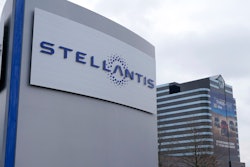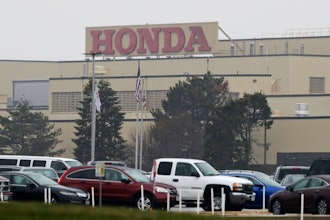A new report recommends that auto companies strengthen industry collaboration, worker training and career opportunities in order to resolve a worsening talent crisis in their supply chains.
The analysis, issued by parcel and logistics company DHL, warned that the industry faces a "perfect storm" in its supply chain. At a time when other manufacturers’ demands for those crucial employees is increasing, an aging population and massive layoffs following the global recession eroded the sector’s overall workforce.
Meanwhile, the report added that not enough new workers are entering the field with the skills needed to fill those jobs, and that higher education as a whole lacks sufficient business faculty that teach supply chain management.
The report indicated that available supply chain jobs outnumber qualified graduates by about six to one, and said that the ratio could grow to nine to one in the future. In addition, DHL officials said the industry faces a dearth of workers in their 30s that would typically resolve a serious talent shortage in middle management.
The automotive sector, in particular, faces further problems due to increasingly complex manufacturing and a "tectonic shift" toward emerging markets — where, the report notes, the industry faces an ongoing image problem.
"Relying on the traditional education path — universities — to fill the talent needs won’t work because that will take years,” said Christiane Beimel, an executive with DHL in Germany. "The industry needs a faster solution — one that combines a multi-pronged approach, and one that is collaborative across all players in the business."
In order to combat the problem, the report in part urged automakers and their suppliers to collaborate with academic institutions and trade associations to develop education programs specifically for the automotive supply chain.
Other proposals included developing company-specific educational programs, either externally or in-house, and utilizing pending retirees as mentors to younger workers. The analysis also suggested rotating professionals between different jobs within a company in order to increase their skills and business savvy.
Finally, DHL recommended that companies aggressively seek to make their businesses desirable places for employees — particularly regarding pay, benefits and career advancement opportunities.
"Supply chain can’t be seen as a ‘fallback’ position," said DHL Global Forwarding Middle Europe CEO Volker Oesau. "This means corporate culture needs to change — and that change must come from the C-level."






















